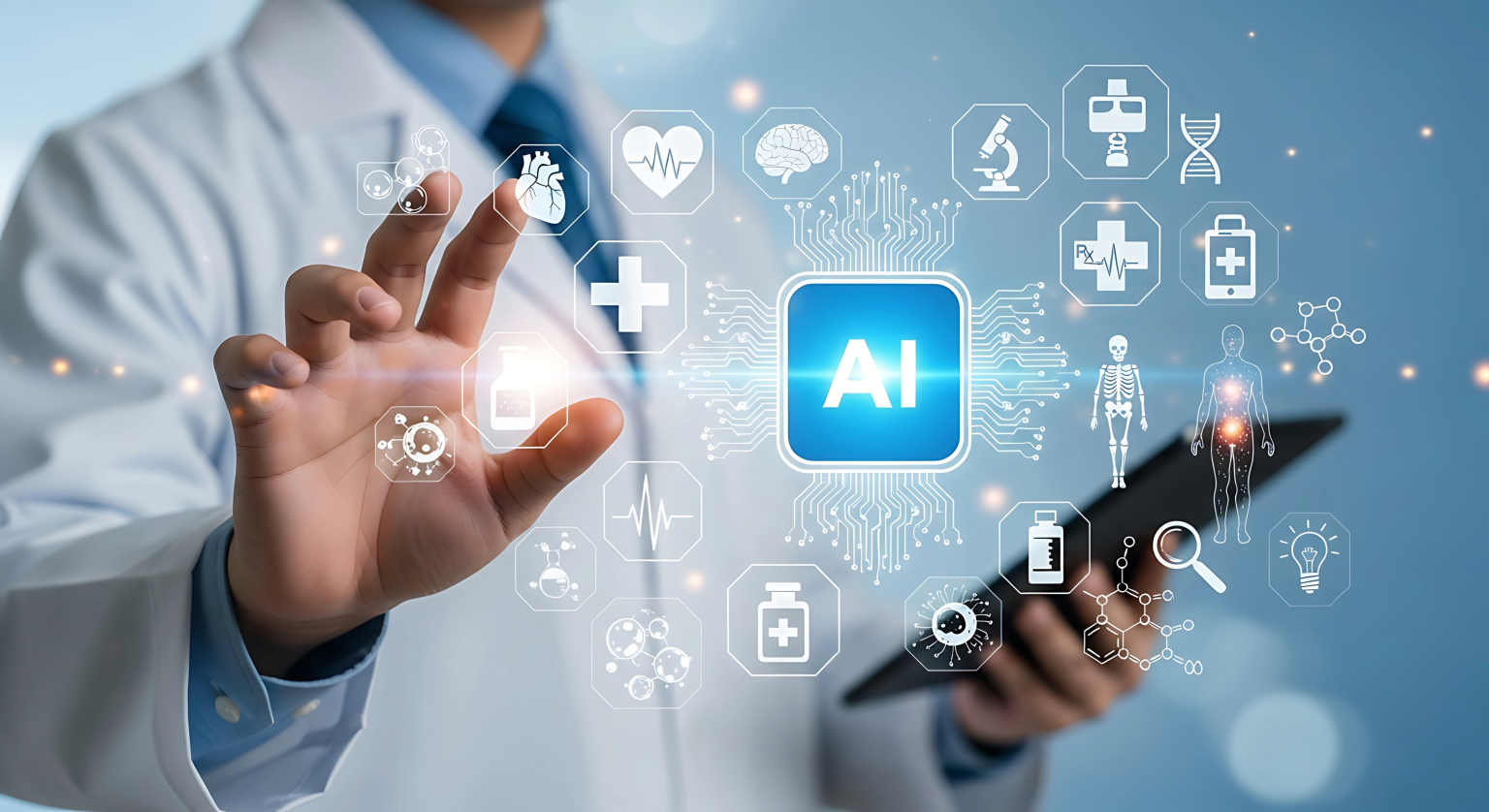AI is rapidly spreading to all aspects of modern life, including healthcare, quickly becoming an invaluable tool that causes us to ask ourselves how we ever lived without it.
The Apple Watch 11 has the ability to notify users when they should check their blood pressure, through the use of AI models and existing sensor data. Although it cannot sense blood pressure itself, it uses algorithms to compare sensor and blood pressure data to recognise patterns that can be used to identify a user’s high blood pressure. With 600 million adults unaware of hypertension and its major contribution to early death, identifying it early could save lives (WHO, 2025). Furthermore, Apple Watch AI bots have begun to discover heart conditions like weakened pump ability, damaged valves and thickened heart muscle, through sensors that provide ultrasound images of the heart. It runs single-lead electrocardiograms (ECGs) to help to detect early forms of heart disease, meaning that users could get a preliminary diagnosis before realising that there was an issue, letting them know to seek further help from medical professionals. Accurately identifying the people with structural heart disease 86% of the time (Peel, 2025), the watch has proved successful in pioneering the discovery of these serious illnesses.
Additionally, AI has contributed to mapping the cellular architecture of the brain, allowing for rapid, accurate and accessible analysis of brain scans through the publicly available software NextBrain. This software has the potential to aid the initial stages of neurological diseases, such as Alzheimer’s, before symptoms appear, allowing for monitoring and potential prevention of these diseases.
As of June 2025, the AI DERM by skin analytics has assessed over 170,000 NHS patients for concerns about skin cancer (Skin Analytics, 2023). This technology has sped up diagnosis and prevented those with benign lesions or other non-urgent conditions from increasing the wait times for more urgent appointments.
The current attitudes towards AI range widely, with some people embracing AI and using it in daily life, whilst others appear cautious of the environmental and cognitive damage that may be caused by AI. In reality, AI is a focal part of modern life, just as computers and steam power became part of modern life when they were developed. Due to the complexity and wide uses of AI, there is not a black or white answer as to whether AI is good, but most people would agree that using it to save lives would be a good thing.
From an NHS report on workers’ confidence in AI (Nix, Onisiforou and Painter, 2022), there is clear concern about AI replacing human jobs, with healthcare jobs including administration, radiology and pathology showing the most concern. There were also concerns about patient safety with the use of AI, and that, without public acceptance of the use of AI in treatment and diagnostics, it would be challenging to implement AI when approaching healthcare from a patient led perspective. Although there were concerns, in a 2020 survey of over one thousand NHS staff, most felt that AI would increase the quality of their work. Overall, the report found that governance, safe implementation, and the safe use of patient data are crucial to improving confidence in the use of AI in healthcare.
It’s clear that AI has a place in the future of diagnostic medicine, with its ability to process large amounts of data, its pattern recognition and quick processing making it an invaluable tool. However, it will only be trusted by the public through transparency of the companies controlling the AI, the protection of patient’s information and through evidence that AI can provide correct diagnoses.
Image used: Found on Adobe Stock and by Sansert.
Khalifa, M. and Albadawy, M. (2024) ‘AI in diagnostic imaging: Revolutionising accuracy and efficiency’, Computer Methods and Programs in Biomedicine Update, 5, p. 100146. Available at: https://doi.org/10.1016/j.cmpbup.2024.100146. Midgley, M. (2025). AI Creates the Most Detailed 3D Map of the Human Brain Ever Made – Neuroscience News. [online] Neuroscience News. Available at: https://neurosciencenews.com/ai-3d-brain-map-29894/ [Accessed 19 Nov. 2025].
National Cybersecurity Alliance (2025) Does AI Take Your Data? AI and Data Privacy – National Cybersecurity Alliance. Available at: https://www.staysafeonline.org/articles/does-ai-take-your-data-ai-and-data-privacy (Accessed: 14 November 2025).
Nix, D.M., Onisiforou, G. and Painter, D.A. (2022) Understanding healthcare workers’ confidence in AI. 1 of 2. NHS AI Lab & Health Education England. Available at: https://digital-transformation.hee.nhs.uk/binaries/content/assets/digital-transformation/dart-ed/understandingconfidenceinai-may22.pdf (Accessed: 14 November 2025).
Peel, M. (2025). Apple Watch data teamed with AI reveals heart damage. [online] @FinancialTimes. Available at: https://www.ft.com/content/4766c95e-9a87-4ec8-9f18-1f54df0ba713 [Accessed 19 Nov. 2025].
Skin Analytics (2023) ‘AI for Dermatology – Skin Analytics’, 15 May. Available at: https://skin-analytics.com/ai-pathways/ (Accessed: 14 November 2025).
WHO (2025) Hypertension. Available at: https://www.who.int/news-room/fact-sheets/detail/hypertension (Accessed: 14 November 2025).


